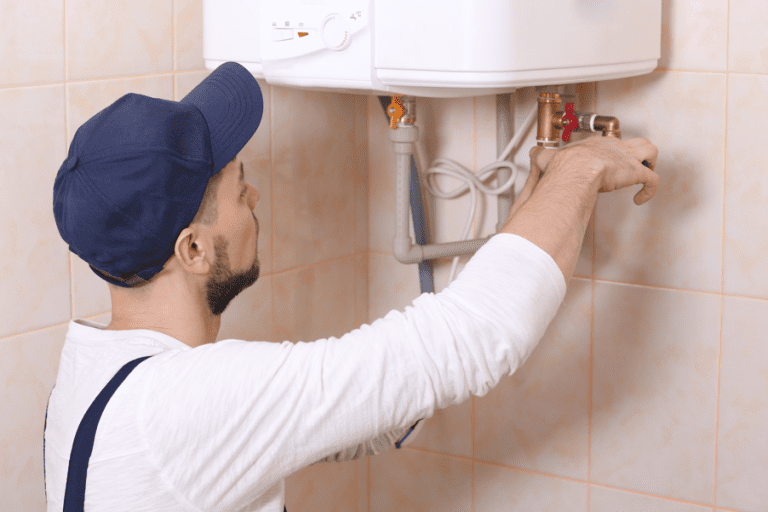Your water heater is an essential appliance that provides comfort and convenience to your daily life. When it begins to show signs of distress, ignoring them can lead to wasted energy, increased utility bills, and potential water damage in your home. Recognizing the subtle warning signals early on can save you from unexpected breakdowns and costly repairs. Below are several clear indicators that your water heater might be in need of repair.
Diminished Hot Water Output
If you notice that you’re no longer receiving a consistent flow of warm water—perhaps experiencing intermittent cold showers or lukewarm water when you need it most—this could be an early sign of trouble. Over time, sediment can build up inside the tank, reducing its overall heating efficiency. This lack of consistent heating not only indicates the unit is struggling to maintain a high operating temperature but may also hint at internal blockages that threaten the appliance’s lifespan.
Unusual Noises and Disturbances
Audible disturbances coming from your water heater should never be ignored. If you begin to hear persistent rumbling, popping, or even hissing sounds coming from the unit, it might be more than the typical settling noise. These sounds are often a result of sediment accumulation at the bottom of the tank, causing localized overheating and expansion. The ongoing friction and heat buildup not only generate noise but also stress the internal components.
Signs of Leakage and Moisture
A telltale sign that your water heater requires professional attention is the appearance of water leaks or moisture accumulation around the appliance. Whether you detect small puddles forming near the base or notice dampness on the surrounding floor, these symptoms can indicate a breach in the tank’s integrity or failing seals. Even a minor leak can lead to more extensive damage, weakening the structural supports and causing corrosion over time. Early intervention in response to this sign can help safeguard your home against water damage and prevent further deterioration of the unit.
Discolored or Rusty Water
The quality of your household water is also a reliable indicator of the state of your water heater. If you observe any unusual discoloration—such as a rusty tint or murky appearance—in the hot water coming from your taps, this could be caused by internal corrosion. Rust particles can detach from the inner lining of the tank and disperse throughout your water supply. Aside from being unappealing, this condition may denote that the protective measures within your heater, such as the anode rod, are no longer functioning effectively. Restoring your water heater’s performance might require specialized repairs or even replacement to ensure safe, clean water.
Rising Energy Expenses
An unexpected spike in your monthly energy bills, accompanied by declining water heater performance, is another common warning sign. When your unit begins to work overtime in order to maintain an acceptable water temperature, it consumes more energy. This increased usage not only drives up your utility costs but also puts added strain on the system. Over time, continuously operating under inefficient conditions can lead to accelerated wear and tear. Monitoring your energy consumption and comparing it with past trends can provide valuable insight into whether your water heater is operating efficiently or needs professional assistance.
Off-Putting Odors in Hot Water
Have you ever been greeted by an unpleasant smell when using hot water? The emergence of foul or rotten egg odors in your water can be an unsettling indicator that something is amiss with your water heater. Often, these odors are the result of chemical reactions occurring within the unit or due to bacterial buildup interacting with the anode rod. While water treatment and filtration might help temporarily mask the issue, the underlying problem can only be resolved by addressing the water heater itself.
Visible Signs of Wear and Aging
The overall condition and age of your water heater can offer essential clues to its performance. Even without a sudden malfunction, older units are more susceptible to the gradual deterioration of internal components. Corrosion, compromised seals, and worn-out heating elements are common challenges that come with extended use. If you notice any visible deterioration or if your appliance has been in service for many years, it may be nearing the end of its reliable lifespan. Regular inspections and maintenance can help prolong the service life of your water heater, but sometimes the best solution is to invest in timely repairs or an upgrade before a complete breakdown occurs.
Taking Action Before the Breakdown
Recognizing these signs early on is crucial for both safety and financial reasons. Addressing minor issues immediately can prevent them from escalating into major repairs or even necessitating a full replacement of the unit. A timely consultation with a trusted repair professional or a qualified plumber can help diagnose the problems accurately and offer tailored solutions. Check out the site for more information.


